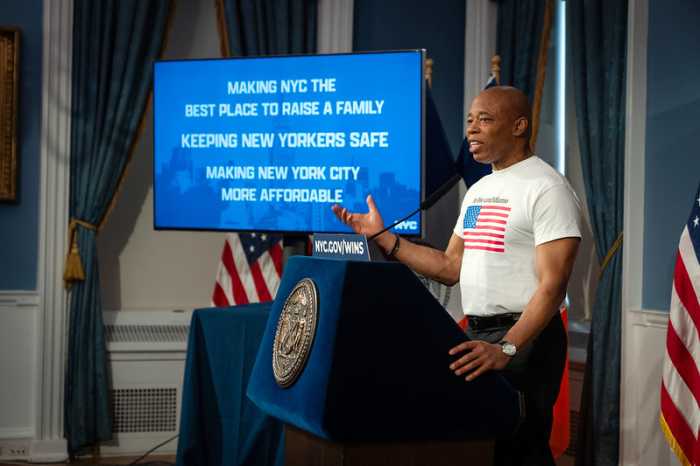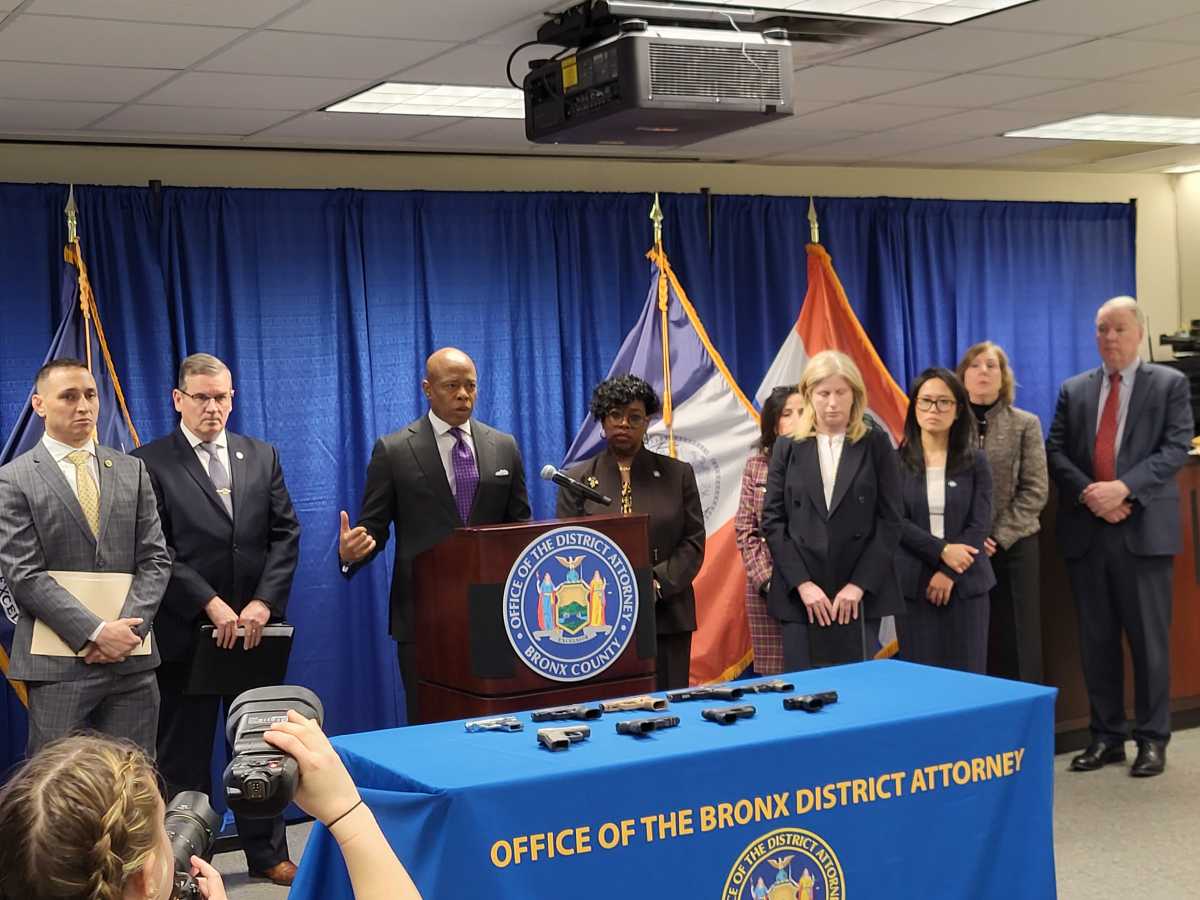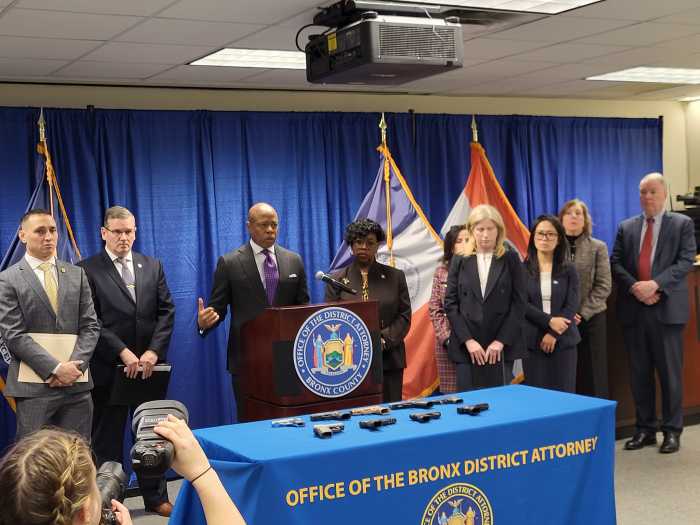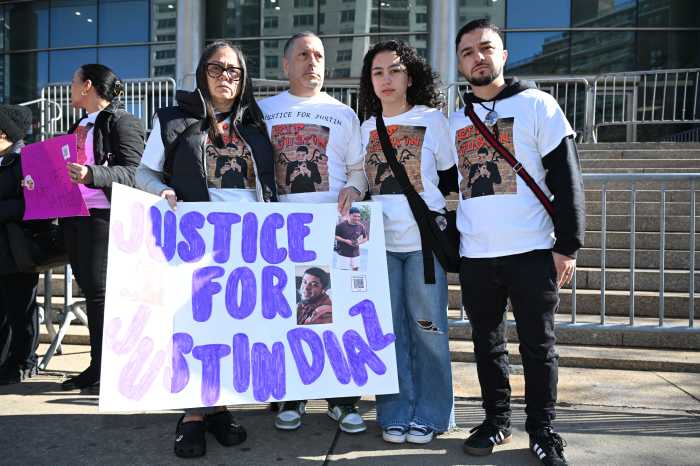
People always say that life in New York is fast-paced – and most New Yorkers would proudly agree. We secretly love impatiently waiting for our morning Starbucks, downing a breakfast sandwich on the subway and grabbing a dollar slice in between bars. This also means New Yorkers often participate in a culture of convenience – and one that does not benefit the Earth. We use a disposable coffee cup for 10 minutes and then send it to landfill. We do the same with our takeout containers, plastic bags, cutlery, straws, water bottles — and even perfectly edible food.
This is how so many New Yorkers live day-to-day, because it feels like the most convenient way. But as a New York resident who transitioned to a zero-waste lifestyle last year, I’ve found my life is just as convenient as it was before. As Lauren Singer, owner of the Williamsburg zero-waste lifestyle store Package Free, says, “I’m just an average, lazy person, and I wouldn’t live this lifestyle if it was difficult.”
The key to producing less waste while on-the-go is simple: preparation. Taking a few minutes to prepare reusable items before heading out can help you not only reduce waste, but also save you time and money.
But does it really make a difference when one individual reduces their personal waste? How much trash could one person really send to landfill? According to the Environmental Protection Agency, the average American produces 4.6 pounds of trash per day. That’s about 1600 pounds of trash per person, per year.

So even if the idea of producing zero waste feels overwhelming, you can still make a huge difference by taking incremental steps, and Earth Day, April 22, is a great time to get started. Here are 11 totally painless tips New Yorkers can consider integrating into their daily routines.
1. Say “no” more
The most liberating part of going zero waste is refusing things. From plastic straws to ketchup packets to the million napkins your bodega guy shoves in with your breakfast sandwich, it can seriously add up. Getting into the habit of saying no can make a significant difference, and actually be pretty easy. When you order a drink in a bar or restaurant, say “no straw, please.” You can even bring your own reusable stainless steel straw, which will last forever. If you’re getting takeout, tell the employee to skip the plastic cutlery, ketchup packets, napkins, etc. You can likely find more sustainable versions of all that in your home or office.
2. Eat your food
How many times have we all noticed a mysterious smell in the fridge, done a little digging, and then realized we let leftovers go bad yet again? To prevent food waste, before getting take out or going grocery shopping take a look through your fridge for what you may have forgotten about, get creative with random leftovers (how about an everything-but-the-kitchen-sink soup?) and freeze food before it has a chance to go bad.

Morton Salt’s Walk Her Walk campaign has a lot of other great tips for reducing food waste, as does the EPA.
3. Carry a reusable water bottle
Instead of buying a fresh water bottle every time you’re thirsty, invest in a reusable version you always bring with you. (Hey, if you can remember your keys every day, you can totally remember a water bottle, too.) A double-walled stainless steel bottle is a one-time purchase, fully recyclable and will keep your beverage cold all day long. Plus, New Yorkers love to brag about how fabulous our tap water is — so we should take advantage of it.
4. Stop using single-use coffee cups
A person who gets a coffee to go every day sends 365 cups to a landfill in just one year. With a simple swap, that number goes to zero. Bringing a reusable cup to a cafe also can save you money, as many coffee shops offer a discount for using your own cup (Starbucks included). Try a lightweight bamboo option, or, for fans of iced coffee, a stainless steel tumbler.
5. Use your own cutlery, cloth napkin, etc.
Pack whatever else you may need to make your day a little easier. Grab a fork, knife, and spoon from your home (or buy a lightweight bamboo set), and either toss them in your bag or leave them in the office. Do the same with a cloth napkin. If you often go to one of those delis with large buffets on your lunch break, throw a lightweight container in your bag, and use that instead of the disposable ones beside the buffet. You can even hand your own container or cloth napkin to an employee for a salad, sandwich, pastry, etc. Additionally, NYC lunchtime staple Just Salad has its own reusable bowl program, and participants get free toppings.
6. Pack snacks in reusable containers
Imagine never having to spend money on Ziplocs again. All you have to do is pack leftovers and snacks in reusables — for example, a Tupperware, a Mason jar, or even a cloth napkin — instead of a plastic baggy. That’s it. Done. Not to mention, packing your own snacks will ensure that you don’t have to buy a $2 bag of chips from a deli. And speaking of snacks…
7. Shop in the bulk bins
Every Whole Foods and Fairway in NYC have a bulk section, where you can fill bags or jars of your own with everything from rice to nuts to pretzels to chocolate chips. (Yes, chocolate chips!) To avoid the plastic bags provided by the bulk bins, you can either buy some fancy reusable bulk bags, or bring empty jars from your home. (An empty tomato sauce or salsa jar will work perfectly.) Whole Foods’ customer service desk is always really great about taring jars, which means taking the weight of the empty container. Simply write the weight on the bottom of the jar, fill it with bulk goodies, and head to checkout as usual, where the cashier will weigh everything and deduct the tare.
Other great stores for shopping in bulk in NYC are Integral Yoga Natural Foods, the 4th Street Food Co-op and the Bushwick Food Coop, which also offer bulk liquids like olive oil, soy sauce, dish soap, shampoo and more.
8. Carry a tote bag
For all those times our groceries have burst through plastic grocery bags and splattered all over the sidewalk, it’s probably in most New Yorkers’ best interest to use reusable tote bags for grocery shopping.
Carrying a tote bag with you every day in case of a surprise purchase is one of the simplest waste-reducing steps you can take. Odds are you already have a bunch of totes at home, but you can also invest in a quality one that folds up teeny-tiny, and keep it in your bag or jacket pocket.
9. Buy loose produce
The above advice also goes for produce bags. It’s a super easy change to stop buying produce that comes in mesh bags, plastic cartons, or, worst of all, styrofoam trays (which are completely unrecyclable and take at least 500 of years to decompose) and to stop using single-use plastic bags for loose produce. Instead, opt for a set of reusable mesh produce bags. (Or, just let your produce go naked in your shopping cart. You’re going to wash it once you get home anyway… probably.)
10. Shop at the farmer’s market
When it comes to shopping for loose produce, there’s no place better than the farmer’s market — and all five boroughs of NYC have farmers markets, pretty much every day of the week. The GrowNYC website has got you covered with info on dozens of greenmarkets all across the city. And not only do the farmers markets sell fresh, local produce, but many stands sell things including eggs, bread, meat, honey, lavender everything, and more.
11. Compost
New York makes collecting food scraps for composting fairly accessible, with brown compost bins popping up outside many small residential buildings (you can request one for your building here), and compost collection bins at a ton of the GrowNYC farmers markets (click here for the markets’ food scrap collection schedule).
Collecting your food scraps for composting is as simple as this: Put a large bowl or container of any kind in your freezer, which will prevent the scraps from smelling. Whenever you have something compostable (in NYC, that’s pretty much any food scrap that is not meat or dairy), throw it in your freezer instead of the garbage can. Whenever your container fills up (or, let’s be honest, whenever you have the time), dump it all into a brown paper bag (they’re compostable!) and drop it in your nearest brown bin. From there, your food scraps will be turned into nutrient-rich soil instead of landfill waste. Pain-free, stink-free, and cost-free!


































